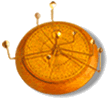|
Verb
|
·
tense and personal (singular, dual, plural) suffixes
|
| |
-
present
-
past
-
future
·
gerund
·
voice
-
active or passive
·
participle
·
mood
-
imperative
-
conditional
-
optative and supine
-
subjunctive
-
infinitive
·
other
-
reflexive verbs
-
the verb biti - positive, negative, interrogative, and use
of familiar and
formal forms
- irregular verbs
|
|
Adverb
|
·
formation
·
types: time, place, manner
·
function of adverbs, eg, in the formation of the comparative adjective
|
|
Noun
|
·
case
-
nominative
-
genitive
-
dative
-
accusative
-
locative
-
instrumental
·
gender
-
masculine
-
feminine
-
neuter
·
number
-
singular
-
dual
-
plural
·
declension
-
first (feminine nouns ending in a)
-
second (feminine nouns ending in a consonant)
-
third (masculine nouns ending in a consonant, inanimate, animate)
-
fourth (neuter nouns ending in e or o)
·
nouns used only in plural forms
·
diminutive
·
exceptions
|
Adjective |
·
declension
-
gender
-
number
-
case
·
comparative - formation using adverb and superlative, using suffixes
·
superlative - formation using prefixes
|
Pronoun |
·
personal
·
interrogative
·
demonstrative
·
possessive
·
relative
·
reflexive
·
indefinite, definite
|
Numeral |
·
cardinal - declension, case
·
ordinal
·
numeric expression of quantity - declension
|
|
Sentence & Phrase
types
|
·
statements
·
questions
·
compound sentences
·
complex sentences
·
commands
·
direct and indirect speech
·
noun phrases adjectival phrases
|
| Negation |
|
|
Semantics and Pragmatics
Vocabulary
The
type of vocabulary included will depend largely on the discourse
forms, activities, settings, roles and topics selected:
·
compound words
·
derivation
·
diminutives
·
neologisms
·
loanwords
Cohesive
Devices
·
conjunctions
-
coordinating
-
subordinating
Routines
(formulaic expressions), Fillers and Exclamations
Style
·
formal and
informal forms of address
|
| |

